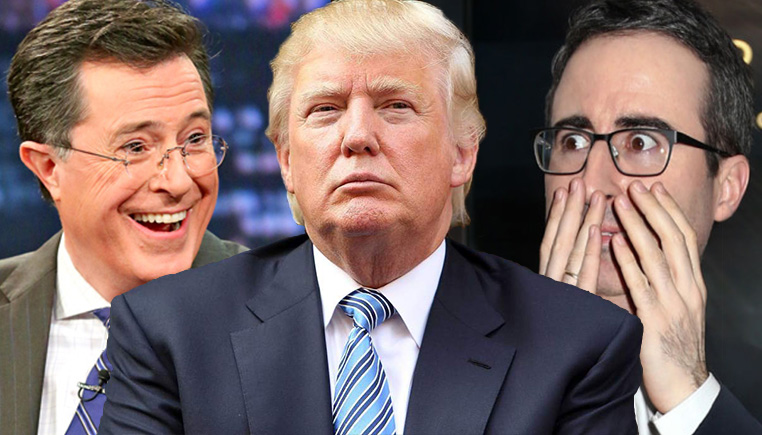 People often ask why Millennials are fleeing traditional media.
People often ask why Millennials are fleeing traditional media.
To me it’s too dismissive to say “They’re apathetic” or “It’s the Twitter generation”. Here’s my take – main stream media is:
- Not relevant
- Too boring
- With so much choice there are more fun options like BuzzFeed and Reddit
- Too depressing
And no doubt about it, lots at the moment is depressing: the US presidential race; the EU trials and
tribs, the Syrian peace plan(s), the directionless Australian Turnbull/Abbott tit-for-tat. And there’s nothing to indicate it’s going to lighten-up.
So when life gets ridiculous, is a chuckle best? Would you prefer to watch John Oliver’s take on Donald Trump – a couple of minutes guaranteed to give you a chuckle – or a serious 60 Minutes piece on the same? Belly-laugh beats serious, hands down.
Take Stephen Colbert’s Trump v Trump debate; within the comedy a point cleverly made.
Chasing ratings – short term v long term
The aim for media is to ‘Give me the information and entertainment I want’. This is a change from pre-globalisation when in a limited market even tabloid journalism tended towards ‘Give them the information and entertainment they need’. Big mental shift for journalists.
In my former area of Australian TV journalism, the default has been to go tacky tabloid, which seems to miss that demand. Sure it’s cheaper, but are there winners in a race to the bottom?
The alternatives for attracting a new audience appear to be tougher and more costly, and as a follower of news outlets with a longer-term view, I think there are two.
The first is taking a lighter, wittier, quirkier look at life. Again, Oliver in this series of stories makes big issues more watchable. The Washington Post also appears to be testing feather-touch treatment at The 5-Minute Fix. Then there are stories like ‘Which Country should you move to if Donald Trump is elected President’, or ‘Voters like pols who can laugh at themselves….’ or the beautifully written Chis Christie’s wordless screaming’.
The second area of growth seems to be retaining wise-heads like Thomas Friedman (NYT – 40% of NYT mobile is under 35). At FT.com the selling point over the phone to try and keep me as subscriber was its specialist writers. On a local level papers like The Conversation and The Guardian (Australian edition) have recruited established political writers.
Now, both humourous and knowledgeable are costlier short term, but indications are they are reaching a younger audience. Colbert and Oliver have already tapped into the Millennials; it’s a small jump for others to do the same to compete with BuzzFeed and Reddit.
Where does Public Relations fit?
If the role of journalists is to ‘Give us the information and entertainment we want’, one role of public relations is to strive to help by ensuring that same information and entertainment is presented accurately. Another, without wanting to be overly noble, is to keep pointing journos towards, as they expose others’ flaws, ways to make things better.




